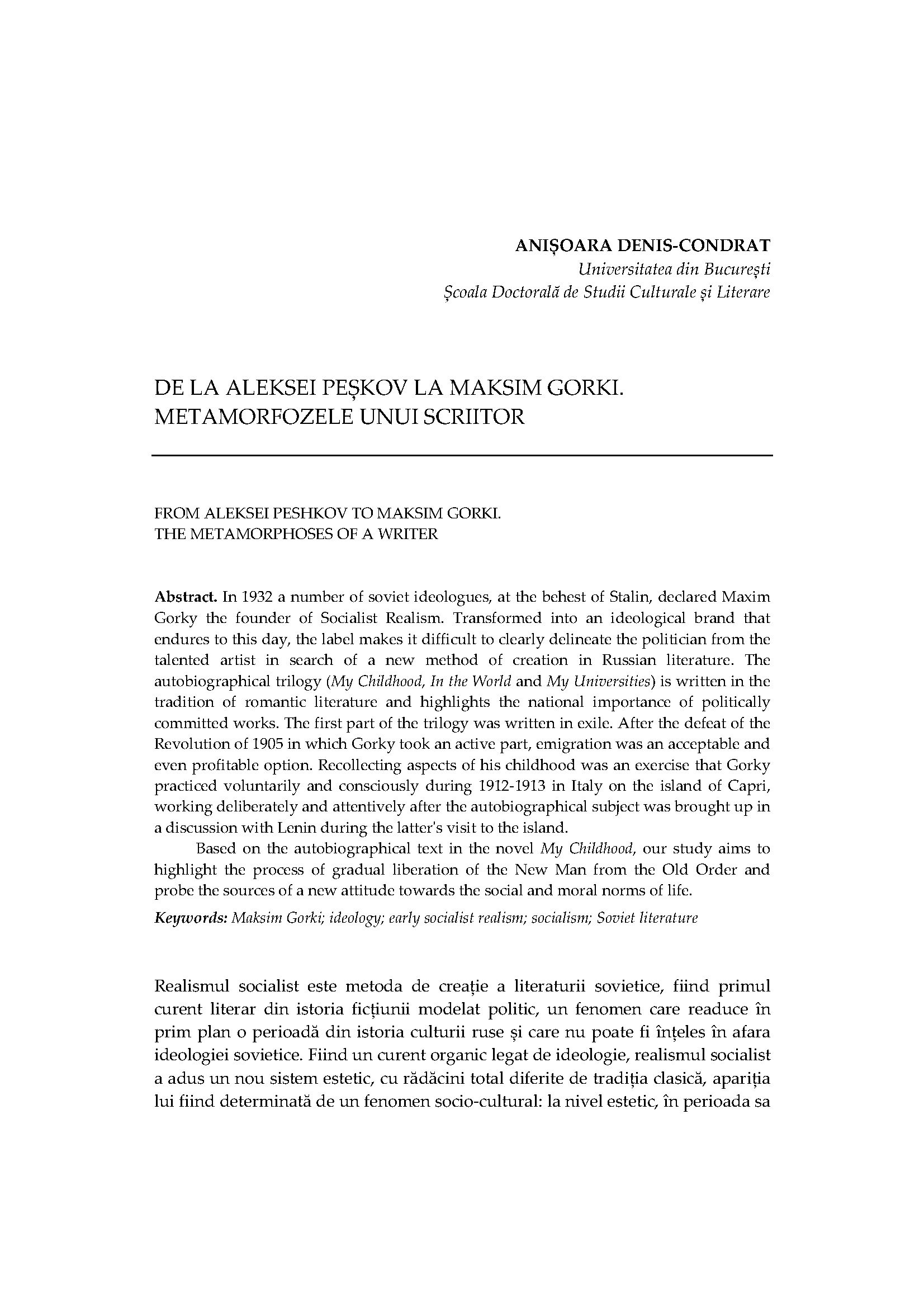DE LA ALEKSEI PEȘKOV LA MAKSIM GORKI. METAMORFOZELE UNUI SCRIITOR
DOI:
https://doi.org/10.62229/slv13/6Cuvinte cheie:
Maksim Gorki, ideology, early socialist realism, socialism, Soviet literatureRezumat
FROM ALEKSEI PESHKOV TO MAKSIM GORKI. THE METAMORPHOSES OF A WRITER
In 1932 a number of soviet ideologues, at the behest of Stalin, declared Maxim Gorky the founder of Socialist Realism. Transformed into an ideological brand that endures to this day, the label makes it difficult to clearly delineate the politician from the talented artist in search of a new method of creation in Russian literature. The autobiographical trilogy (My Childhood, In the World and My Universities) is written in the tradition of romantic literature and highlights the national importance of politically committed works. The first part of the trilogy was written in exile. After the defeat of the
Revolution of 1905 in which Gorky took an active part, emigration was an acceptable and even profitable option. Recollecting aspects of his childhood was an exercise that Gorky practiced voluntarily and consciously during 1912-1913 in Italy on the island of Capri, working deliberately and attentively after the autobiographical subject was brought up in
a discussion with Lenin during the latter's visit to the island. Based on the autobiographical text in the novel My Childhood, our study aims to highlight the process of gradual liberation of the New Man from the Old Order and
probe the sources of a new attitude towards the social and moral norms of life.




